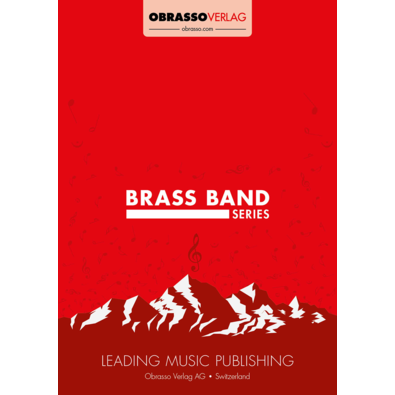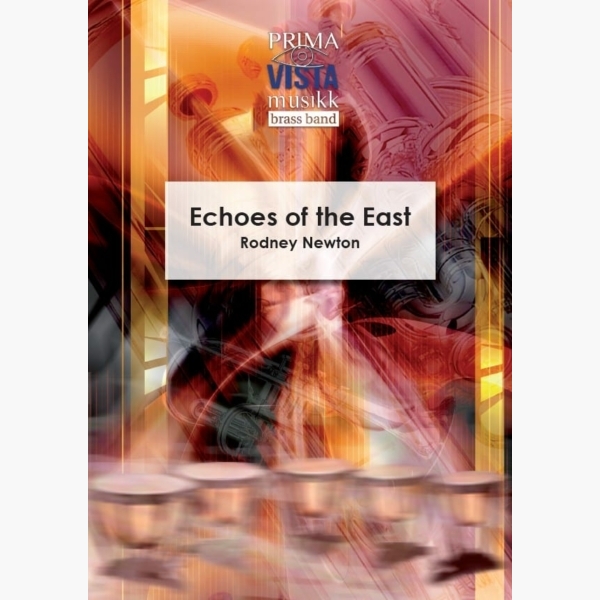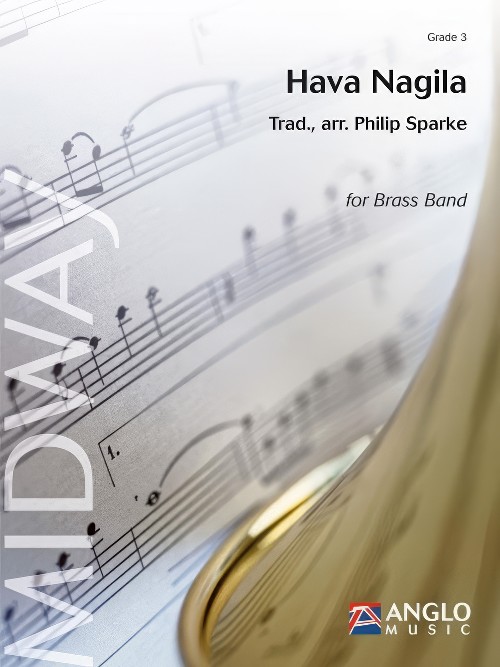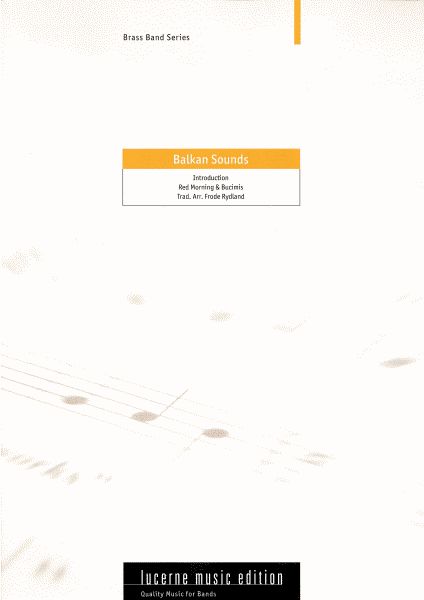Results
-
 £58.60
£58.60 -
 £116.10
£116.10Romanian Rhapsody - Hardy Schneiders
Estimated dispatch 5-14 working days
-
 £92.00
£92.00Romanian Folk Dances - Béla Bartók
Estimated dispatch 5-14 working days
-
£28.00
-
 £49.95
£49.95Echoes of the East - Rodney Newton
This exciting addition to the brass band repertoire comes from the pen of Rodney Newton. He has taken traditional Bulgarian and Romanian folk tunes and blended them into a showcase featuring both soloists and the band as a whole. All...
Estimated dispatch 5-7 working days
-
 £72.99
£72.99English Dances, Set 1, Op. 27: No. 1 - Sir Malcolm Arnold
English Dances, Set I, opus 27, is a light classic composition that was written for orchestra by the British composer Malcolm Arnold in 1950. The set contains four dances that continue without pause: the individual movements are indicated by the tempo markings. The work came about at the request of Bernard de Nevers, at the time the head of publisher Alfred Lengnick & Co., who asked Arnold to write a suite of dances as an English counterpart to Dvo ak's Slavonic Dances and Bartok's Romanian Folk Dances. The premiere took place in the spring of 1951, played by the London Philharmonic Orchestra, conducted by Sir Adrian Boult. Following the success of the first set, DeNevers asked the composer to write a second one, which Arnold completed the next year (Op. 33). The Andantino from the first set has been skilfully arranged and orchestrated for brass band by Ray Farr.
Estimated dispatch 5-14 working days
-
 £57.50
£57.50Hava Nagila (Brass Band - Score and Parts) - Sparke, Philip
Hava Nagila (the title means 'let us rejoice') is perhaps the best known example of a style of Jewish music called 'klezmer'. Klezmer music originated in the 'shtetl' (villages) and the ghettos of Eastern Europe, where itinerant Jewish troubadours, known as 'klezmorim', had performed at celebrations, particularly weddings, since the early Middle Ages. 'Klezmer' is a Yiddish term combining the Hebrew words 'kley' (instrument) and 'zemer' (song) and the roots of the style are found in secular melodies, popular dances, Jewish 'hazanut' (cantorial music) and also the 'nigunim', the wordless melodies intoned by the 'Hasidim' (orthodox Jews).Since the 16th century, lyrics had been added to klezmer music, due to the 'badkhn' (the master of ceremony at weddings), to the 'Purimshpil' (the play of Esther at Purim) and to traditions of the Yiddish theatre, but the term gradually became synonymous with instrumental music, particularly featuring the violin and clarinet. The melody of Hava Nagila was adapted from a folk dance from the Romanian district of Bucovina. The commonly used text is taken from Psalm 118 of the Hebrew bible.Duration: 3:00
Estimated dispatch 7-14 working days
-
 £48.95
£48.95Balkan Sounds (introduction,Red Sounds & Bucimis)
Balkan Sounds is a piece of varying colours and moods that accurately reflects the diverse musical influences of the Balkan melting pot. It is a fertile musical breeding ground of cultural musical ideas - many of which come together in an amalgam of melodic themes, but is a mixture that at its heart is deeply middle European in feel with a bias of Eastern undercurrent as its heartbeat - from the Tartars and Cossacks to the Romanian Gypsies and orthodox Jews.
Estimated dispatch 7-14 working days
